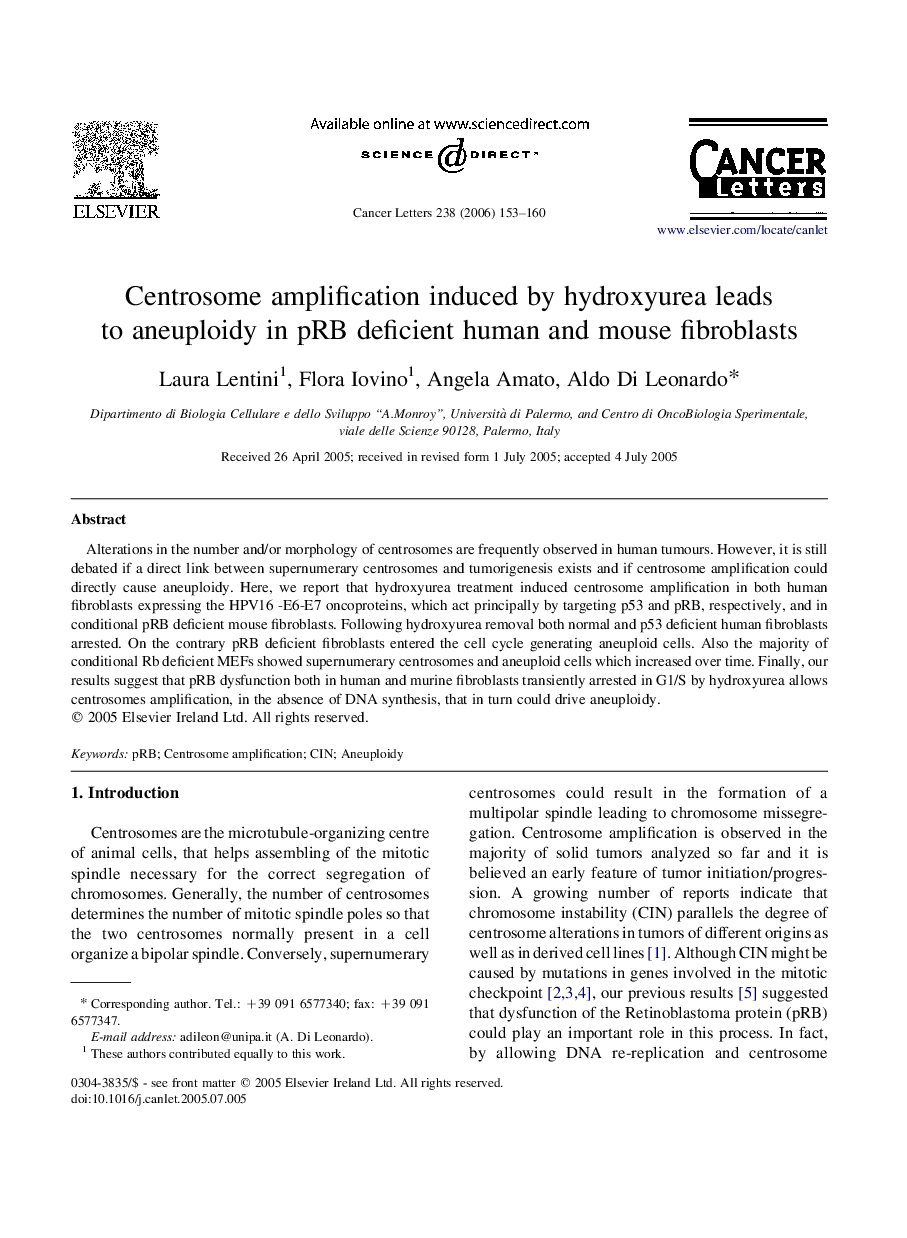| Article ID | Journal | Published Year | Pages | File Type |
|---|---|---|---|---|
| 2115812 | Cancer Letters | 2006 | 8 Pages |
Alterations in the number and/or morphology of centrosomes are frequently observed in human tumours. However, it is still debated if a direct link between supernumerary centrosomes and tumorigenesis exists and if centrosome amplification could directly cause aneuploidy. Here, we report that hydroxyurea treatment induced centrosome amplification in both human fibroblasts expressing the HPV16 -E6-E7 oncoproteins, which act principally by targeting p53 and pRB, respectively, and in conditional pRB deficient mouse fibroblasts. Following hydroxyurea removal both normal and p53 deficient human fibroblasts arrested. On the contrary pRB deficient fibroblasts entered the cell cycle generating aneuploid cells. Also the majority of conditional Rb deficient MEFs showed supernumerary centrosomes and aneuploid cells which increased over time. Finally, our results suggest that pRB dysfunction both in human and murine fibroblasts transiently arrested in G1/S by hydroxyurea allows centrosomes amplification, in the absence of DNA synthesis, that in turn could drive aneuploidy.
